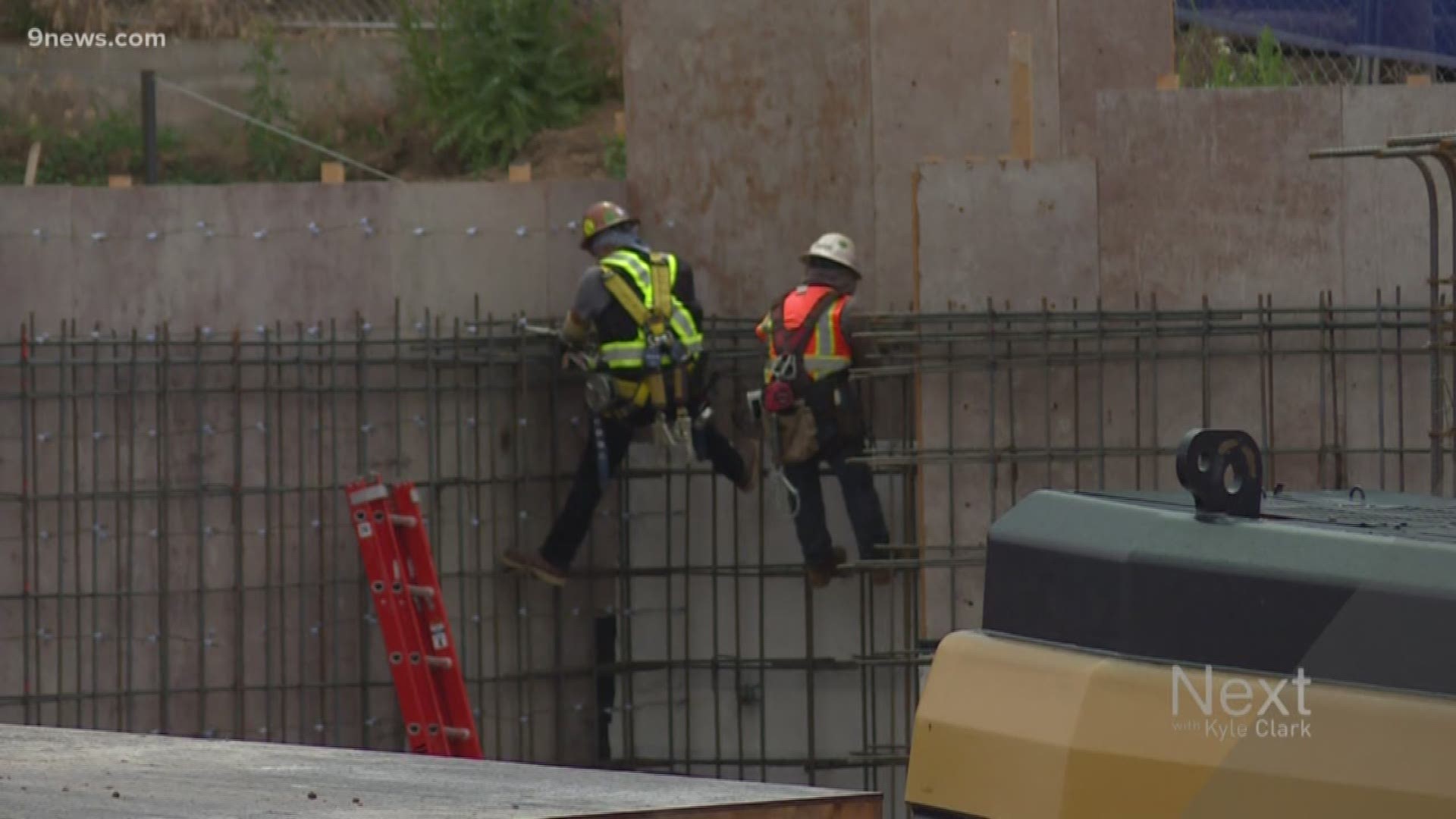DENVER — Denver mayoral candidates made development a key talking point during the May and June election, but Lakewood voters are actually making a development decision in a special July election.
Ballot Question 200 will appear on the special July 2 election in Lakewood. It asks:
"Shall the City of Lakewood limit residential growth to no more than one (1) percent per year by implementing a permit allocation system for new dwelling units, and by requiring City Council approval of allocations for projects of forty (40) or more units?"
The ballot question is just three lines long, but the text of what would be put into law in Lakewood is 14 pages.
A YES vote on Question 200 requires Lakewood to limit the number of new apartment or housing units to one percent of what existed the year before.
A NO vote on Question 200 does not change anything. Lakewood would still issue permits and allow development just as it does today.
If 200 were to pass, here's how the math works. There are approximately 68,000 residences in Lakewood. Based on the requirement that growth would be limited to no more than one percent, developers would only be allowed to add 680 units in 2020.
The city would have 680 allotments to issue in 2020. An allotment would be required before a building permit would be allowed. If a developer wants to build a project with more than 40 units, special public meetings would have to be held, and that developer could be put on hold to wait and see if developers of smaller projects want to request allotments.
There would be exceptions to the one percent limit:
- New units on blighted land
- Housing units for Colorado Christian University and Rocky Mountain College of Art and Design
- Homes that are torn down and rebuilt
Lakewood does not track how many dwelling units exist in the city, but the city has tracked the number of certificates of occupancy since 2010. A certificate of occupancy is issued when a specific unit is ready to be lived in.
In 2012, there were no apartment units given certificates of occupancy. Since then, the number has increased:
2013: 52 (219 single-family)
2014: 131 (225 single-family)
2015: 583 (173 single-family)
2016: 726 (210 single-family)
2017: 182 (174 single-family)
2018: 962 (216 single-family)
In 2018, the 962 apartments represented 82 percent of the new unit growth in Lakewood.
There are two issue committees that have formed in support of Ballot Question 200 and five issue committees against it.
The Yes on 200 committees are:
- Save Lakewood FROM Overdevelopment - Vote Yes for Slower Growth
- Strategic Growth for Lakewood
Together, they have raised $10,000 through May. Of that, $6,600 have come from former Lakewood city councilwoman Edie Bryan.
The No on 200 committees are:
- Citizens for a Sound Government
- Lakewood Consequences
- Lakewood for Labor and Jobs
- Lakewood United
- Our Lakewood 2019
Those five groups combined have raised nearly $300,000.
Two-thirds of that ($200,000) is from the National Association of Realtors. Another $25,000 is from the Associated General Contractors of Colorado. And $50 is from Lakewood Mayor Adam Paul.
So why is Lakewood having a special election in July?
This was actually ready to go in 2017. The Yes on 200 committee collected enough signatures to get this on the ballot in 2017, but the petitions were challenged in court.
That challenge was lost but has been appealed.
In the meantime, Lakewood City Council voted to change its initiative procedures to allow the election to happen despite that court appeal.
City Council could have implemented 200 without a vote, but instead it sent the issue to voters for the special election.
Ballots went out starting June 10, and they need to be received by Lakewood's clerk by 7 p.m. on July 2.
SUGGESTED VIDEOS: Next with Kyle Clark

